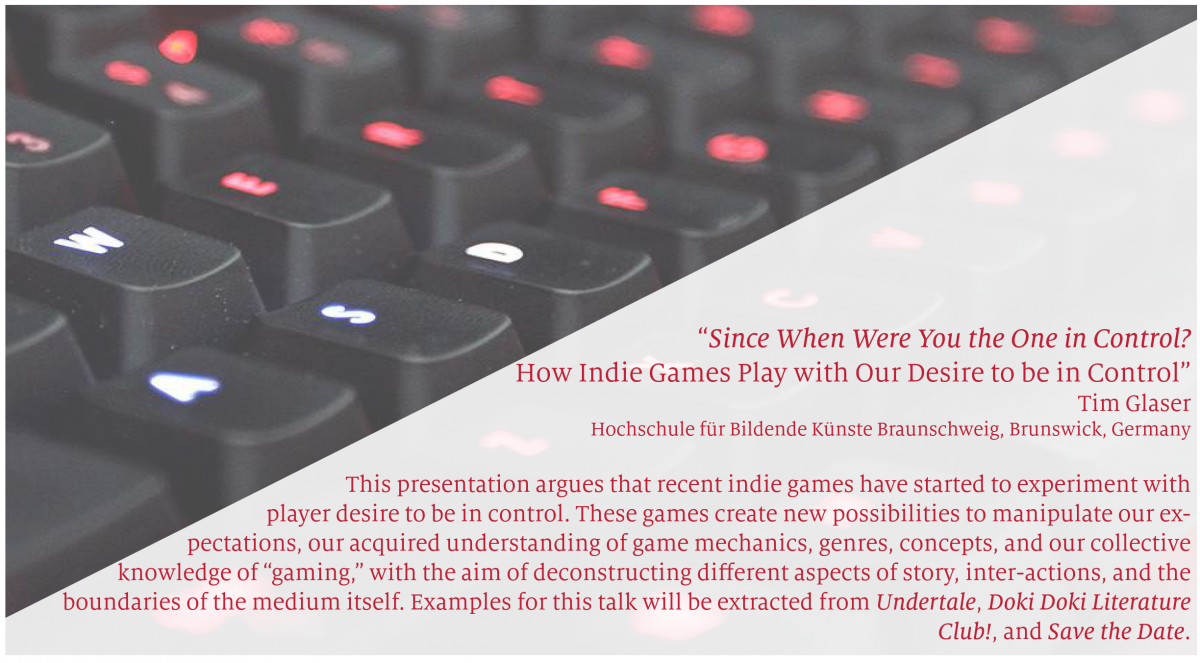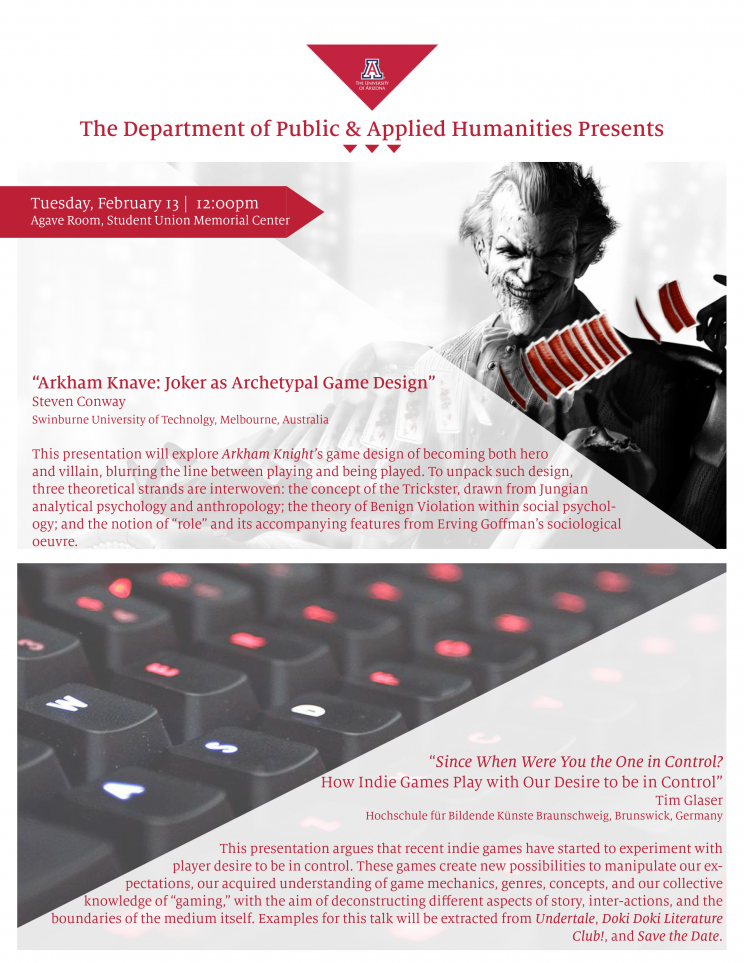University of Arizona – Vortrag: „Since when were you the one in control?“
Nach einer einmal mehr großartigen Konferenz in Albuquerque geht es heute nach Arizona, genauer gesagt Tucson, um dort die Learning Game Iniative zu besuchen und weiter über die Freuden und den Wahnsinn von Computerspielen zu sprechen.
Vor allem freue ich mich darauf in zwei Tagen (13. Februar) beim Department of Public & Applied Humanities einen Vortrag zu halten, zusammen mit dem großartigen Steven Conway von der Swinburne University of Technolgy, Melbourne, Australia. Kommt gerne vorbei, falls ihr anonyme Menge zufällig im Süden der USA verweilen solltet, was zugegeben vielleicht nicht wahrscheinlich ist …
Abstract:
„Since when were you the one in control?“
How Indie Games play with our desire to be in control
Tim Glaser, Braunschweig University of Art
„Video games are actions.“ (Galloway: 2) Not only is every possible manipulation of game space, through avatars or otherwise, an interaction, the software itself is not a passive object. Games are running and crashing, creating worlds, populating them with NPCs, items and elements to interact, even without us being present. In between the diegetic and nondiegetic acts, between the actions of the machines and the operators lies a complex network of control and feedback, what Furtwängler describes as control systems:
“For games as control systems it is necessary that the embedded mechanics of control are creating aesthetic outputs, solely when control is performed. The feedback of this execution of control over the (game)world is a certain truth that impacts the game. Game worlds can be very self-sufficient and self-important: the created worlds expose the effects of control as part of the medium. And the mediation of control arrives as direct feedback for the user in the mode of aesthetic experiences – either individually for a single player or collectively for a group of gamers.” (Furtwängler: 126, translated from German)
This paper argues that several recent Indie Games started to experiment with our desire to be in control. Furthermore those games create new possibilities to manipulate our expectations, our acquired understanding of game mechanics, genres, concepts and our collective knowledge of „gaming“, with the aim to deconstruct different aspects of story, inter-actions and the boundaries of the medium itself. Examples for this talk will be extracted from Undertale (2015, Toby Fox), Doki Doki Literature Club! (2017, Team Salvato) and Save the Date (2013, Paper Dino Software).



